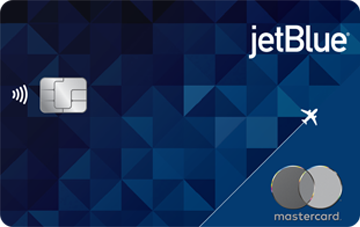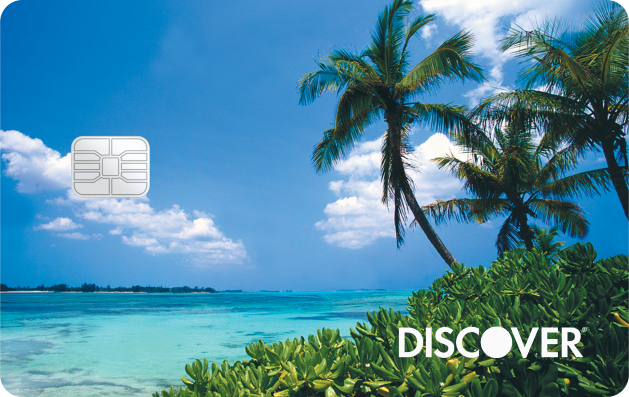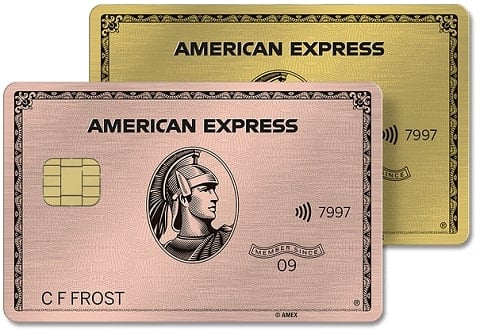JetBlue Plus Review: Bundle of Benefits, Reasonable Annual Fee
The Bottom Line
4.3
If you're a JetBlue loyalist or could easily be one, this card is a great pick, thanks to its bevy of benefits. Even if you fly with the airline only once or twice a year, it may still make sense.


Rates, fees and offers
Rates, fees and offers
Annual fee
$99
Rewards rate
1x-6x
Bonus offer
Earn 60,000 bonus points after spending $1,000 on purchases and paying the annual fee in full, both within the first 90 days, with the JetBlue Plus Card.
Intro APR
0% intro APR on Balance Transfers for 12 billing cycles
Ongoing APR
APR: 19.74%-29.74%, Variable APR
Cash Advance APR: 29.99%, Variable
Balance transfer fee
Either $5 or 5% of the amount of each transfer, whichever is greater.
Foreign transaction fee
0% of each transaction in U.S. dollars.
More details from Barclays
More details from Barclays
- Earn 60,000 bonus points after spending $1,000 on purchases and paying the annual fee in full, both within the first 90 days
- Earn 6X points on eligible JetBlue purchases, 2X points at restaurants and eligible grocery stores, and 1X points on all other purchases
- Earn 5,000 bonus points every year after your account anniversary
- Free first checked bag for you and up to 3 eligible travel companions on JetBlue-operated flights
- Receive a $100 statement credit after you purchase a JetBlue Vacations package of $100 or more with your JetBlue Plus Card. Limit one statement credit per year
- 50% inflight savings on eligible food and drink purchases
- No blackout dates. Redeem for any seat, any time on JetBlue-operated flights
- Get 10% of your points back after you redeem for and travel on a JetBlue-operated Award Flight
- Points Payback allows you to redeem points for a statement credit
Pros and Cons
Pros
Bonus categories
New cardholder bonus offer
Free checked bag
Anniversary perk
Intro APR period
Cons
Has annual fee
Rewards have limited flexibility
Requires excellent credit
Detailed Review
For JetBlue loyalists who travel frequently, the JetBlue Plus Card adds up to a great deal. Beyond its generous rewards rates and introductory bonus, cardholders receive a bundle of benefits, including an ongoing annual point deposit that helps make up for a good chunk of the card's $99 annual fee. The ability to use this card to spend your way to status may also appeal to some frequent flyers and is rare among airline credit cards.
Even casual JetBlue flyers could find enough value from the Barclays-issued JetBlue Plus Card to make it worth carrying. If your family usually checks bags, even just taking one trip a year could justify the cost of the card.
Of course, JetBlue's not as large as other airlines, so this card's usefulness depends on where you live and where you want to go.
If you love JetBlue but are hesitant to pay an annual fee, there is a $0-annual-fee version called the JetBlue Card (no "Plus" in the name). It earns decent rewards, but you won’t get free checked bags with it. Or — if you really, really love JetBlue and are interested in premium perks with the airline — you could consider the $499-annual-fee JetBlue Premier Card. For more information about how these JetBlue credit cards stack up, see the table below, as well as our JetBlue credit card comparison.
JetBlue Plus Card: Basics
Card type: Airline.
Annual fee: $99.
Sign-up bonus: Earn 60,000 bonus points after spending $1,000 on purchases and paying the annual fee in full, both within the first 90 days, with the JetBlue Plus Card.
Rewards:
6 TrueBlue points for every $1 spent on purchases made directly with JetBlue Airways.
2 points for every $1 spent on restaurant and grocery store purchases.
1 point for every $1 spent on all other purchases.
1 JetBlue rewards "tile" for every $1,000 in eligible purchases.
NerdWallet values JetBlue points at 1.4 cents each. This is a baseline value, drawn from real-world data on hundreds of economy routes, not a maximized value. In other words, you should aim for award redemptions that offer 1.4 cents or more in value from your JetBlue points.
The JetBlue Plus Card now earns rewards "tiles" that can be redeemed for "Perks You Pick" benefits under the revamped TrueBlue rewards program (effective March 2023). You can select a new benefit, like early boarding or a 5,000 TrueBlue points bonus, for every 10 tiles you earn.
APR: 0% intro APR on Balance Transfers for the first 12 billing cycles, and then the ongoing APR of 19.74%-29.74%, Variable APR.
Foreign transaction fee: $0.
Other benefits:
5,000 bonus TrueBlue points every year after your account anniversary.
First checked bag free for you and up to three traveling companions when you use your card to book your travel.
Earn JetBlue Mosaic status after earning 50 rewards tiles each calendar year (equal to spending $50,000 on the card).
Annual $100 statement credit when you purchase a JetBlue Vacations package of $100 or more with the card.
Save 50% on in-flight cocktail and food purchases on JetBlue.
10% points rebate when you redeem rewards.
Use the "Points Payback" option to offset charges and receive a statement credit for any purchase over $25 within 90 days of the purchase, up to $1,000 in statement credits per calendar year.
Compare to Other Cards
Vacation more, spend less. Subscribe to our free newsletter for inspiration, tips, and money-saving strategies – delivered straight to your inbox.
By signing up, you will receive newsletters and promotional content and agree to our Terms of Use and acknowledge the data practices in our Privacy Policy. You may unsubscribe at any time.
Benefits and Perks
Free checked bags
When you pay for your travel with the JetBlue Plus Card, you’ll get the first checked bag free for you and up to three travel companions. Without the card, your first checked bag would cost $35, so that’s a one-way savings of $140 if you and each of your traveling companions checked one bag. If your journey is round-trip, that savings multiplies to $280. If your family of four takes two round-trip JetBlue flights each year, that adds up to a savings of $560.
Annual bonus helps offset the fee
Some cards offer a one-time bonus, but the JetBlue Plus Card rewards cardholders with something extra every year. Each year on your cardmember anniversary, you’ll automatically be awarded 5,000 TrueBlue points.
Based on NerdWallet valuations, those annual bonus points are worth around $75, which lowers the card's effective annual cost of ownership to $24.
Spend your way to status
If you’re a loyal JetBlue flyer who logs a lot of miles each year, the ability to earn elite status could be appealing. Spend $50,000 on your JetBlue Plus Card in a calendar year and you'll earn 50 JetBlue tiles. That’s enough to earn Mosaic status, which comes with the following perks:
Early boarding privileges.
Free beer, wine and cocktails on board.
Ability to redeem points for Even More Space seats at a reduced rate.
To be sure, $50,000 is a hefty threshold to reach. But if you fly JetBlue a lot, these perks can be quite valuable.
Offset charges with points
Cardholders can use the Points Payback feature to redeem their TrueBlue points for a statement credit to offset charges of $25 or more. You can offset up to $1,000 in purchases per calendar year and have up to 90 days after making a purchase to offset the charge.
While this may provide value for cardholders with a glut of points and no plans to fly, points are only worth 0.75 cent each when redeemed this way. That’s well below the value of 1.5 cents each that NerdWallet puts on TrueBlue points.
If you’re looking to use points to offset charges, a general cash-back credit card would be better. The Citi Double Cash® Card has a $0 annual fee and offers a straight 2% cash back on all purchases. You'll earn 1% when you make a purchase and 1% when you pay the bill. There’s also no minimum redemption amount, and points can be used to receive a statement credit or deposited directly into a linked bank account.
Drawbacks and Considerations
Annual fee not waived for the first year
Many airline credit cards don’t charge the annual fee for the first year you hold the card. But the JetBlue Plus Card's $99 annual fee will be charged to your card automatically within six weeks of opening the account. If an annual fee is a dealbreaker, you could opt for this card's little sibling, the $0-annual-fee JetBlue Card. Or you could aim for a general travel rewards card like the Discover it® Miles card. It earns 1.5 miles back on every purchase, and you can redeem miles at a value of 1 cent apiece for credit on your statement against travel purchases, including airline tickets. The annual fee is $0.
On the other hand, if you're looking for even more generous JetBlue-related perks, you could also splurge on the $499-annual-fee JetBlue Premier Card.
Here's how the JetBlue cards compare:
| Empty Table Header | JetBlue Card | JetBlue Plus Card | JetBlue Premier Card |
|---|---|---|---|
Annual fee | $0 | $99 | $499 |
Sign-up bonus | Earn 10,000 bonus points after spending $1,000 on purchases in the first 90 days. | Earn 60,000 bonus points after spending $1,000 on purchases and paying the annual fee in full, both within the first 90 days, with the JetBlue Plus Card. | Earn 80,000 bonus points and 5 tiles after spending $5,000 on purchases in the first 90 days. |
Ongoing rewards |
|
|
|
Other travel perks | 50% in-flight savings on cocktails and food purchases. |
|
|
Redemption bonus | None. | 10% redemption bonus when you redeem TrueBlue points for flights. | 10% points redemption bonus after you travel on a JetBlue-operated award flight. |
Anniversary bonus | None. | 5,000 points bonus each year. | 5,000 anniversary bonus points each year after your account anniversary and after you’ve paid your annual fee. |
Not many sweet spots for JetBlue redemptions
Since JetBlue doesn’t publish an award chart that dictates how many points you’ll need for certain routes, it’s harder to find sweet spots to maximize redemptions. The number of TrueBlue points you’ll need will fluctuate with the cash fares of the tickets.
Even though JetBlue is considered to be a low-cost airline, unlike some low-cost competitors they do have a premium-class cabin (called Mint). But in most cases, it’s not a good value to redeem your TrueBlue points for a Mint seat.
JetBlue's footprint is limited
JetBlue is a growing airline with a large footprint in places like the Caribbean and Central America, in addition to domestic destinations. But the airline certainly isn't ubiquitous. If you don’t live close to a JetBlue hub like Boston; New York (JFK); Orlando and Fort Lauderdale, Florida; or Long Beach, California, you’ll have to take connecting flights to get where you want to go. If driving to a JetBlue-serviced airport is completely out of your way, it’s probably not worth pursuing this card.
A better option for you might be a general travel card like the Chase Sapphire Preferred® Card. It earns bonus rewards in a variety of popular spending categories, including travel and dining. Crucially, those points can potentially be worth more when redeemed for travel booked through Chase. And you can often get a high value by transferring points to the card’s travel partners, one of them being JetBlue. The card's annual fee is $95.
NerdWallet’s roundup of the best credit cards can also help you make a choice.
How To Decide If It's Right For You
If you’re a frequent JetBlue flyer, or even a casual traveler who flies the airline a few times a year, the JetBlue Plus Card may deserve a spot in your wallet. The value cardholders can get from perks like free checked bags and a yearly points bonus can outweigh the annual fee.
If you’d have to go out of your way to fly to and from an airport that JetBlue services, you’re probably better off with a more flexible travel rewards card.
Transfer points to JetBlue, or use elsewhere
You'll earn bonus points in a variety of popular spending categories. You can also transfer points on a 1:1 basis to multiple airline and hotel programs, including JetBlue, or you can use them to book travel through Chase, potentially at a high value per point. But you won't get any airline-specific perks. The annual fee is $95.
Looking For Something Else?
Methodology
NerdWallet reviews credit cards with an eye toward both the quantitative and qualitative features of a card. Quantitative features are those that boil down to dollars and cents, such as fees, interest rates, rewards (including earning rates and redemption values) and the cash value of benefits and perks. Qualitative factors are those that affect how easy or difficult it is for a typical cardholder to get good value from the card. They include such things as the ease of application, simplicity of the rewards structure, the likelihood of using certain features, and whether a card is well-suited to everyday use or is best reserved for specific purchases. Our star ratings serve as a general gauge of how each card compares with others in its class, but star ratings are intended to be just one consideration when a consumer is choosing a credit card. Learn how NerdWallet rates credit cards.
About the authors

Craig Joseph
Lead Writer



